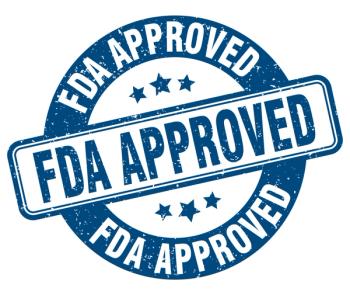
DEA issues rule on pseudoephedrine products
As the pharmacy community complies with the Drug Enforcement Administration's interim final rule on retail sales of pseudoephedrine-related products, pharmacy and retail associations are preparing to send their comments to the agency outlining their members' concerns.
As the pharmacy community complies with the Drug Enforcement Administration's interim final rule on retail sales of pseudoephedrine-related products, pharmacy and retail associations are preparing to send their comments to the agency outlining their members' concerns.
In March 2006, the President signed the Combat Methamphetamine Epidemic Act (CMEA) of 2005, which establishes new requirements for retail sales of products containing ephedrine, pseudoephedrine, and phenylpropa-nolamine. CMEA requires that on and after Sept. 30, 2006, a regulated seller must not sell these scheduled products unless it has self-certified to DEA.
Kevin Nicholson, VP of pharmacy regulatory affairs for the National Association of Chain Drug Stores, credited the DEA for allowing retailers to use its Web site to complete the certification process. However, he noted that the process was difficult for large chains because each physical location had to go through the certification process. "Many retailers had trouble getting the information together, and some chains had to write a software program so they could get information onto a diskette," said Nicholson.
Nicholson said many members are concerned about DEA's requirement that customer information must be entered into a bound logbook. "For privacy protection purposes, many members developed expensive systems and made changes to their registers. Now they have to go back and make changes again. Some of them bought logbooks that aren't bound, stitched, or glued."
Although an electronic logbook is permitted, if there are multiple entries on the same page, retailers will need to put a mechanism or cover sheet in place to make sure patients don't see each other's information, explained Nicholson.
White added, "The statute does not require that the logbook be bound in any way, so there's a question about where DEA's authority for that comes from. It places a lot of logistical challenges on retailers because there is required information that has to be present in every logbook. It's very difficult to get that information into every logbook and distribute it across hundreds of stores."
Nicholson said Oklahoma pharmacies have developed an electronic logbook to meet state requirements but are concerned about meeting federal requirements. "The electronic logbook in Oklahoma doesn't capture all the necessary information for the federal requirements. Some of the pharmacies made changes to the Oklahoma mandated logbook to include the necessary information, but if they haven't, they will have to capture that information somehow. We're not really sure if we're going to have to have another completely separate logbook for the federal requirements or if we can supplement the Oklahoma logbook with a paper logbook that captures the remaining information," he said.
Finally, White said FMI is concerned that in DEA's preamble to the interim final rule, the agency is proposing to charge a fee of $35 per store in order to self-certify. "It is problematic for law-abiding retailers to have to pay for the privilege of serving their consumers. DEA lays out its argument for why they have the legal authority to do that. We will challenge them on that," asserted White.
Meanwhile, DEA is accepting written comments, which must be postmarked on or before Nov. 27, 2006. Electronic comments may be sent to
or
Newsletter
Pharmacy practice is always changing. Stay ahead of the curve with the Drug Topics newsletter and get the latest drug information, industry trends, and patient care tips.























